Comedy is the most difficult form of creative expression to write. Theater, television, film, comic strips. Doesn’t matter. If you’ve ever tried, you promptly realize what you thought was funny on your second glass of wine isn’t quite as funny on your first cup of coffee. Any comedy that can stand the test of time is be treasured. Humor in all its mediums is so vital to the human experience because it gives us the briefest moment of reprieve from the chaos and pain that sums up so much of life. It’s why modern late night tv is so vile. It doesn’t let you escape.
But to create something is hysterical, AND has a plot, AND has great secondary characters, AND isn’t crude or profane, AND is endlessly watchable AND created an entire new sub-genre all at once – well then you’d have “¡Three Amigos!”.
A film that is not only hits all the comedy criteria but can be credited with birthing an entire subset of the genre and preemptively subverting PC culture. Like the found footage horror movie. And no, it was not the sedentary “The Blair Witch Project” that did that it was the repulsive “Cannibal Holocaust”.
“A Bug’s Life”, “Galaxy Quest”, “Tropic Thunder”. The concept of dim-witted actors finding themselves engulfed in real world danger but remain too self-absorbed in their own perceived fame to realized it – until it’s too late. Yeah, that old chestnut. They all owe a story credit to “¡Three Amigos!”. Oh, and one more thing…It gave a PG rated middle finger to cultural appropriate before anyone knew it was a thing.
Stereotypes are stereotypes for a reason. Then once established when you go against the grain and comedy ensues. The plot for “¡Three Amigos!” is standard for western fair with its ‘band of outsiders brought into rid the town of nefarious marauders’. Scenario in comedy is important. It can’t be too complicated as what you need to add to explain the story, you’ll sacrifice in joke time.
Landis, Martin and company set up the stereotype of the ‘greasy beards with bad oral hygiene banditos’ and then throw us for a loop. Turns out this band of thugs is prone to the headaches of a mid-life crisis just as much as your picket-fenced neighbor. Like middle class Americans, they receive sweaters for their 40th birthday in sweltering Mexico when all they really wanted were guns and women.
It’s the Mexican proprietor of Western Union that knows what ‘infamous’ means, not the privileged Anglos. The same cultural appropriators who assume yeah – ‘tequila is just like beer’
It also excels for its magnificent supporting cast that is given something to do other than support. The classic exchange between Jefe and El Guapo is sublimely written, acted, blocked and concluded. Flawlessly realized by Alfonso Arau and Tony Plana, the villainous duo put on an absurdist slow burn of trivial bickering as if they were an old married couple living in Pasadena. Forget about introducing an entire generation to the word ‘plethora’, the scene allows for more secondary character depth than most pretentious dramas. Instead of prepping for a third act stand-off, we are treated to a hilarious send up of the doldrums that a life of burning and looting inflicts when one turns forty.
The film knows precisely how to play the Three Amigos delusion. They dress as an American costumer designer in the 1920s thinks Mexicans dress. Strolling into a noxious dive bar with Elizabeth Warren levels of cultural appropriation, donning their cartoonish wardrobe, these alabaster skinned gringos do the courteous thing and reassure the bartender (a perfectly cast Fred Asparagus) – “We’re not Mexicans. We’re from out of town.” No one thinks their “cultural appropriation” is anything but a facade. The seedy barflies have infinitely more wisdom than the Harvard deans who were mesmerized by yarns of high cheekbones and family recipes to nominate someone “native American.”
We are told that cultural appropriation is an actual thing to be admonished. It’s not. It’s not even a thing. It’s just a phrase that only a fat, bored and leisured society would invent to claim relevance.
Lucky Day, Dusty Bottoms and Ned Nederlander offer a look at acting that likely is as true now as it was portrayed in the 1920s. Fame is fleeting, fake, destructive, irrelevant, and dangerous. Carried through to the absurdist climax where even after being shot, Lucky still briefly holds on to the fantasy that El Guapo not only knows who he is, but is taken by his discernable talent. Deeper still, it has an element of “Sunset Boulevard” with the generational yearning to been seen and appreciated, long after your time has passed.
As for irony, yes. On its surface, “¡Three Amigos!” with its silly name and flamboyant musical numbers could easily be derided for wallowing in stereotypes and juvenile humor. Modern woke audiences have been conditioned to seek out any portrayal of Mexicans as racist. Modern writers think of themselves as having to dial up the profanity and pop-culture references to get an unearned laugh.
“¡Three Amigos!” is none of those things. It may not have known it at the time, but it was a trend setting milestone and worthy of classic status. And it will live on long after its imitators have road off into the sunset.

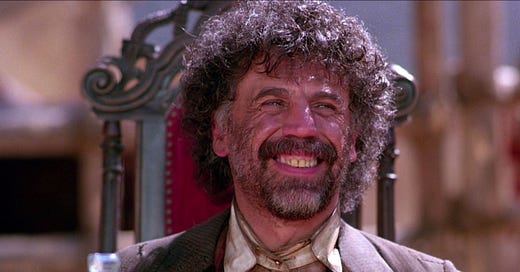


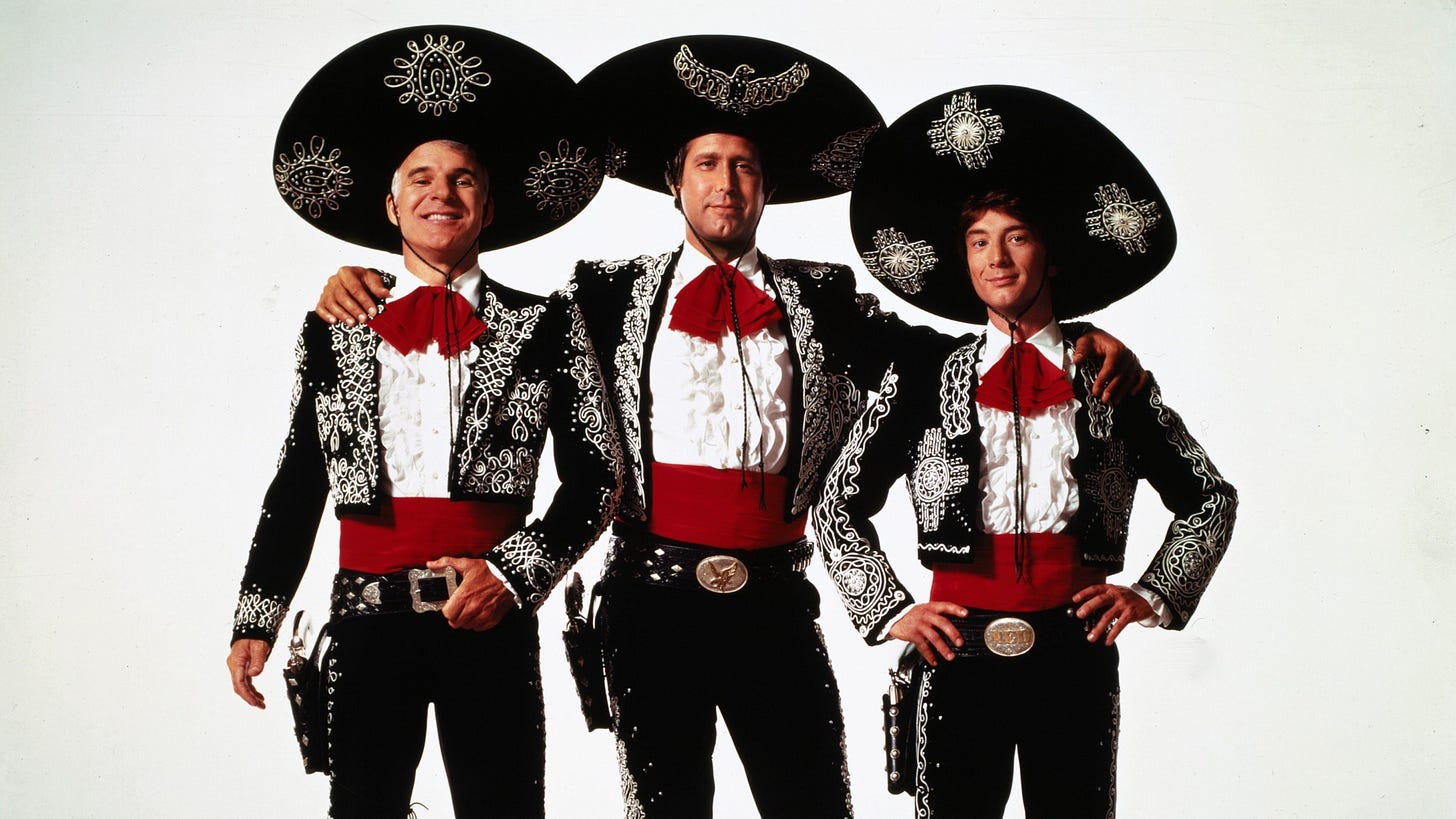
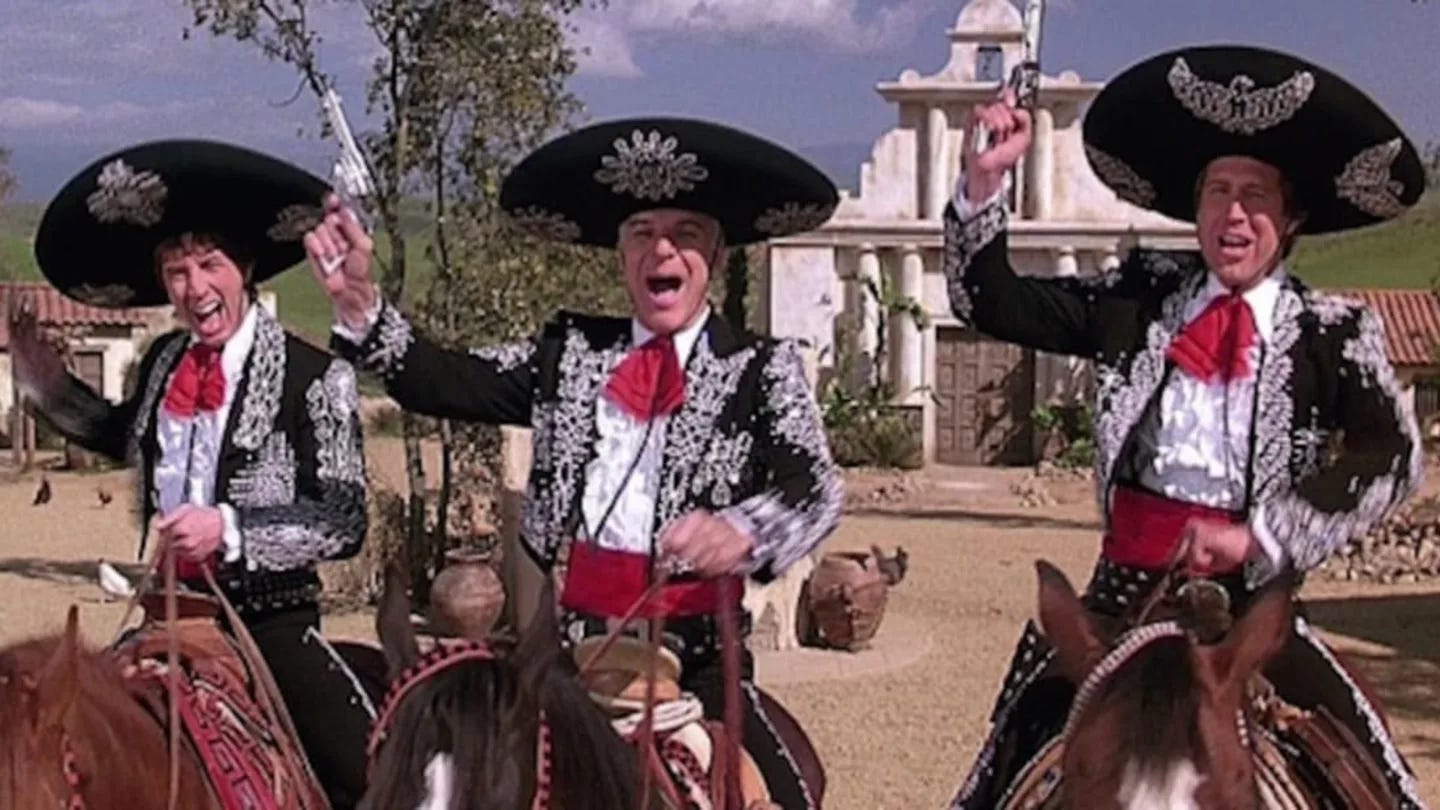

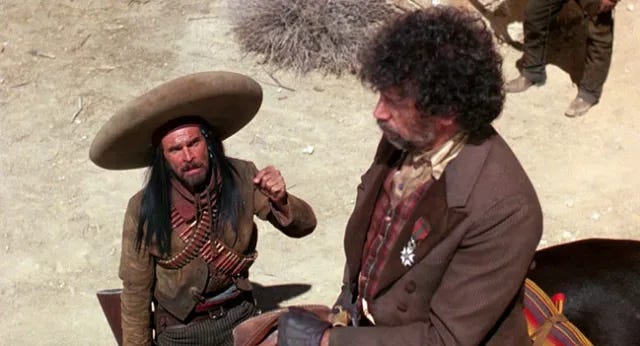
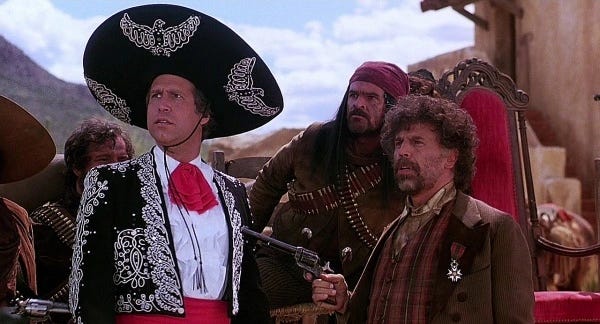
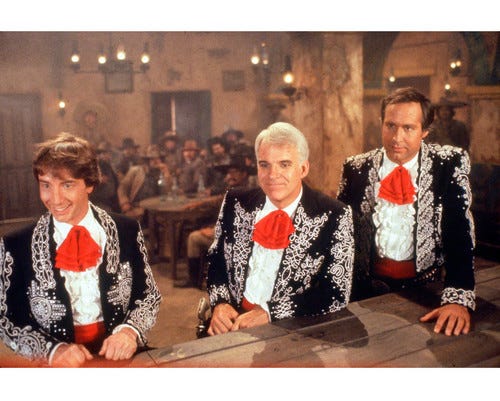
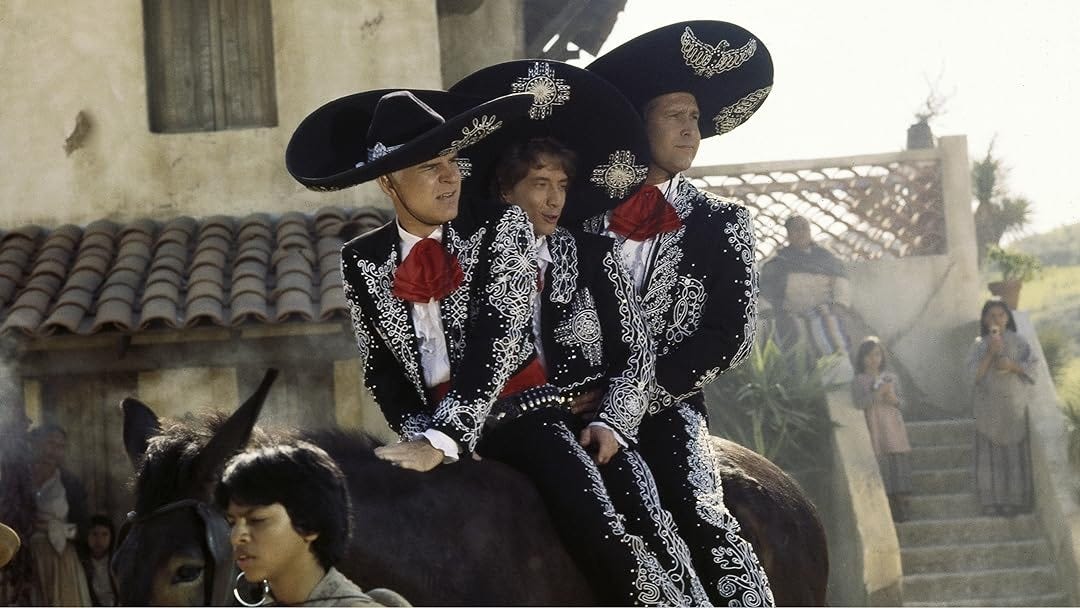
You have a way with words. Love your style. This was again, another great post... keep em coming. "Any comedy that can stand the test of time is be treasured." Hard to come by these days. I found myself watching some old episodes of All in the Family, and kept thinking, no way this would be allowed to air in prime time in todays climate, and its a shame, its a good show!
Spot on commentary!
😊